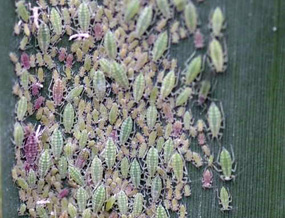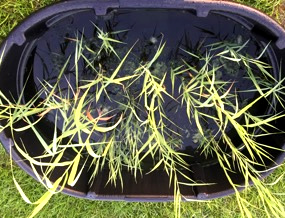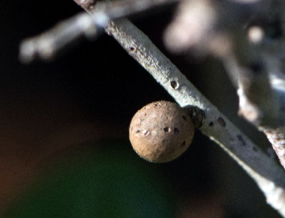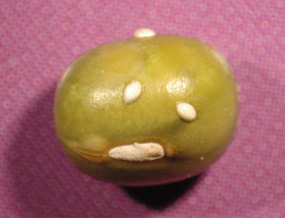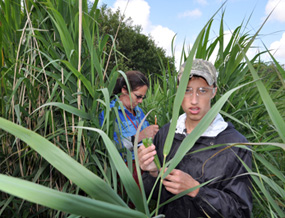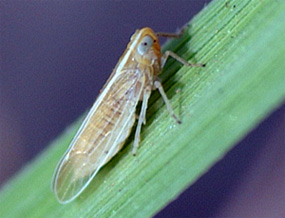Johnston, J. R. Diaz, T. Elsey-Quirk and J. T. Cronin. In review. Competition and soil-microbe mediated interactions following the dieback of a dominant wetland plant. For Ecosphere.
Plant invasions can have important consequences for the soil ecosystem which, in turn, can affect interactions with other plant species and impose serious constraints on restoration efforts. In the Mississippi River Delta (MRD), USA, widespread dieback of the dominant wetland plant, Phragmites australis, was followed by the colonization of invasive Colocasia esculenta (taro) in many areas. We conducted a common-garden experiment to investigate the competitive interactions among taro and two P. australis lineages prevalent in the MRD, Delta and European invasive (EU), and the role of taro soil microbes in mediating those interactions. Plant types were grown alone or together and crossed with a microbial treatment (sterilized or live taro-soil biota). After one growing season, we measured plant above- and belowground biomass. In the absence of taro microbes, Delta and EU had equivalently strong negative effects on each other’s biomass and the biomass of taro; whereas, taro had only a small negative effect on the biomass of P. australis. However, taro-soil microbes had a strong legacy effect, reducing Delta and EU biomasses by 30-33% and taro by 66% when plants were grown without a competitor. Interestingly, when Delta and EU were in competition, the soil legacy resulted in EU being a better competitor – total biomass of Delta and EU were reduced by 90% and 68%, respectively, in comparison to no-microbe/no-competitor controls. Overall, the effects of competition and the taro-soil legacy on Delta and EU were determined to be additive. In contrast, taro microbes and P. australis competitors acted antagonistically to affect taro’s biomass, resulting in only a 67% (with Delta) or 48% (with EU) reduction in taro biomass relative to experimental controls. We conclude that restoration of P. australis in the MRD may require manipulating the soil community to mitigate taro-legacy effects and choosing the P. australis lineage that is the best competitor in the presence of plant-soil feedbacks.
